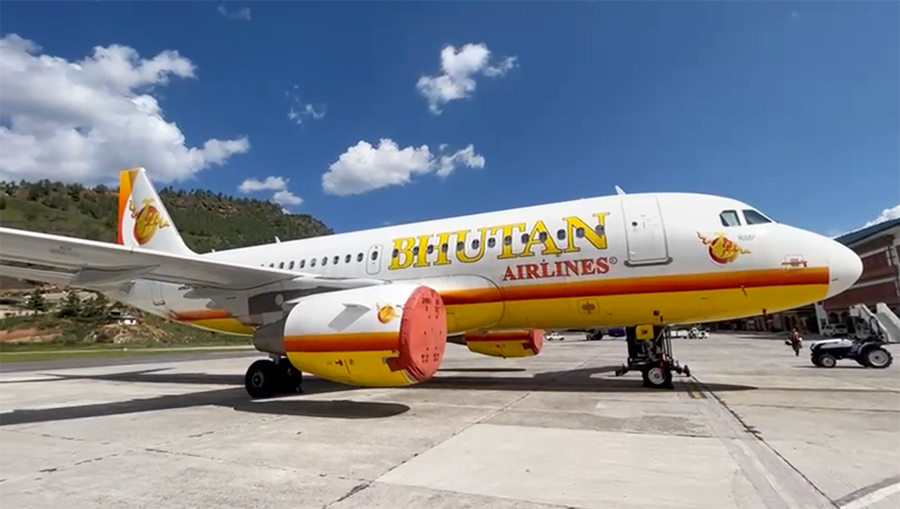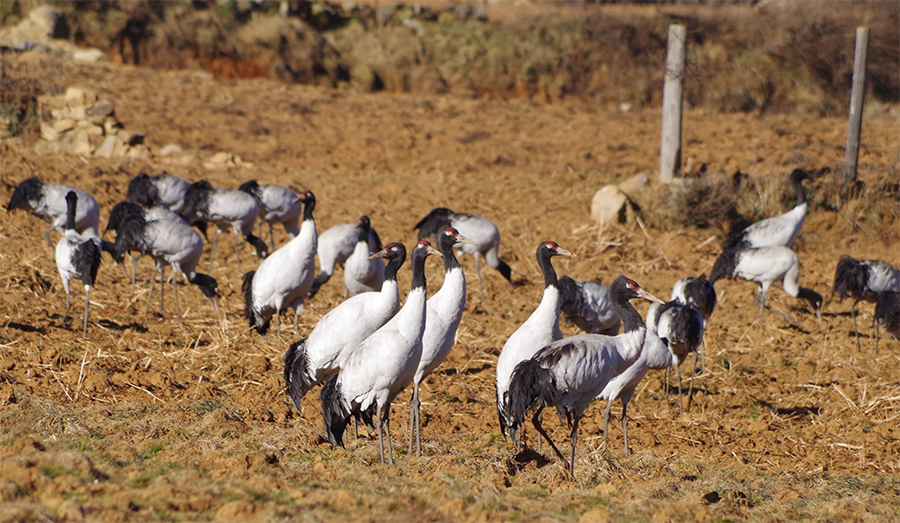 Studies have shown that the aviation industry globally contributes about 2 to 3 per cent to global carbon emissions from fossil fuel combustion. In Bhutan, in a bid to help mitigate the impact, Bhutan Airlines is offering passengers the opportunity to contribute to conservation efforts through its carbon offset programme voluntarily. In return, donors will gain free access to key conservation centres in Bhutan.
Studies have shown that the aviation industry globally contributes about 2 to 3 per cent to global carbon emissions from fossil fuel combustion. In Bhutan, in a bid to help mitigate the impact, Bhutan Airlines is offering passengers the opportunity to contribute to conservation efforts through its carbon offset programme voluntarily. In return, donors will gain free access to key conservation centres in Bhutan.
For instance, in a Paro-New Delhi round trip covering more than 2500 kilometres, each passenger on a Bhutan Airlines plane contributes approximately 200 kilogrammes of carbon emissions during the flight. Offsetting that amount of carbon costs nearly 140 ngultrum, according to CarbonClick, a New Zealand-based carbon offset company.
In addition to fuel combustion, the aviation sector contributes 3.5 per cent to global warming through contrails and nitrogen oxide emissions.
To help address this, Bhutan Airlines has partnered with the Royal Society for Protection of Nature (RSPN) and launched the carbon offset programme last week.
Carbon offset is a practice of compensating for the carbon dioxide emissions produced by an activity, by investing in projects that reduce or remove an equivalent amount of carbon dioxide from the atmosphere.
“Bhutan Airlines initiated the carbon offset programme as part of our commitment to environmental sustainability. It supports global efforts to mitigate climate change and aligns with Bhutan’s goal of remaining a carbon-negative country. As we know, airlines naturally emit significant amounts of carbon dioxide and greenhouse gases,” said Sonam Yangchen, the Commercial Deputy General Manager at Bhutan Airlines.
Through this programme, passengers can voluntarily contribute during ticket booking or donate any amount. The funds will support RSPN’s initiatives on climate resilience, biodiversity conservation, and sustainable livelihoods.
“We have identified three key projects: afforestation in Changchey, the habitat for the white-bellied heron; wetland conservation in Phobjikha, home to the black-necked crane; and providing clean drinking water to vulnerable communities,” added Sonam.
 Contributors to the carbon offset programme will get free entry to the Black-Necked Crane Educational Center in Phobjikha and the White-Bellied Heron Conservation Center in Tsirang. These centres otherwise charge foreigners Nu 200 to 300 and locals Nu 50 to 100 for a visit.
Contributors to the carbon offset programme will get free entry to the Black-Necked Crane Educational Center in Phobjikha and the White-Bellied Heron Conservation Center in Tsirang. These centres otherwise charge foreigners Nu 200 to 300 and locals Nu 50 to 100 for a visit.
Bhutan Airlines says the donations, including carbon offsets, will be accounted for and audited annually as part of RSPN’s annual audit.
By participating in this initiative, travellers will help Bhutan maintain its carbon-neutral status while supporting endangered species conservation and the well-being of local communities.
Kelzang Chhophyel
Edited by Sangay Chezom








